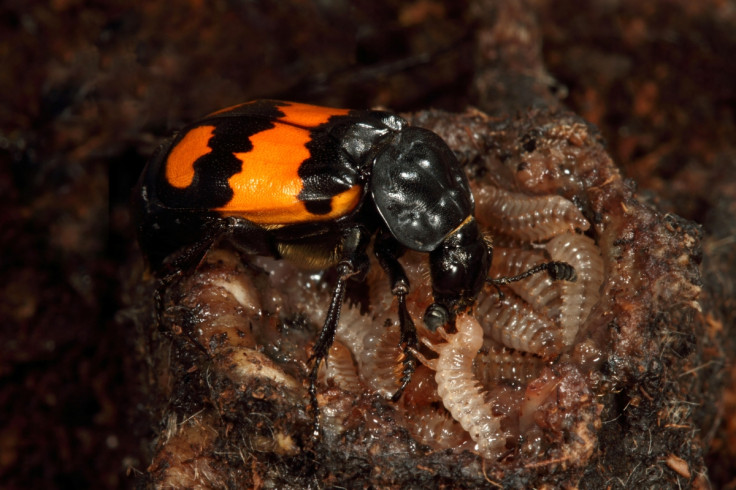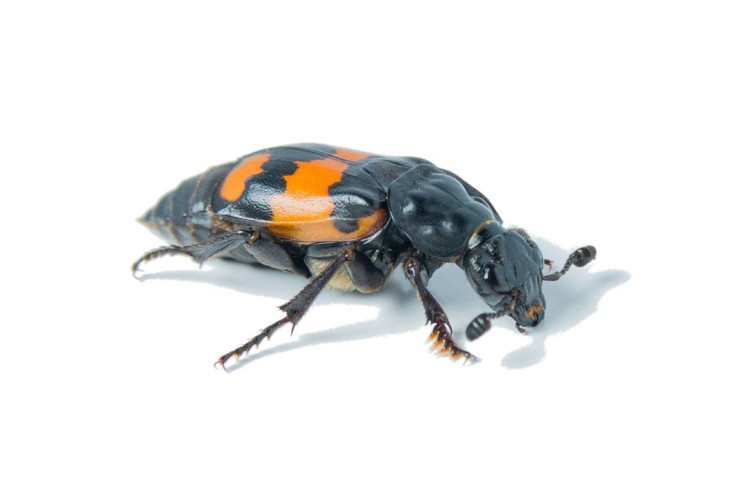Anti-aphrodisiac stops sexual advances on mothering beetles

Female burying beetles release an anti-aphrodisiac secretion that stops sexual advances from males while they care for their young. This allows the mothers to spend more time looking after their offspring.
The research published in Nature Communications is the first to show how burying beetles (Nicrophorus vespilloides) find the balance between caring about their current offspring and their future children.
Both male and female beetles provide care for their young, but the researchers say females tend to take the lead in dictacting whether she means to provide care or continue to mate.

The scientists analysed 400 of the beetles to investigate how they changed their behaviour to provide care for their offspring. They collected the insects from a field near the University of Ulm, Germany.
After 40 days of "mingling", the female beetles were split into groups; those with young offspring, and those without any offspring. The researchers recorded the number of these beetles that laid eggs over the next four days.
They found nearly all of the beetles laid eggs that do not have any current offspring. Less than 20% of beetles with young offspring laid eggs.
The scientists analysed the beetle's hormones to try and understand this, and found the hormone "juvenile hormone III" was elevated in beetles with young offspring. This hormone causes temporary infertility.
Similarly, the researchers observed that fewer males attempted to mate with females that had young offspring. They tested to see if any other chemicals were being released while the juvenile hormone III was enhanced in the beetles.

They discovered a pheromone called "methyl geranate" was being equally released by the mothers. Meythl geranate is used as an anti-aphrodisiac in the beetles, to stop sexual advances.
Both chemicals – juvenile hormone III and methyl geranate – allow female burying beetles to look after their young offspring without difficulty.
The researchers plan to continue studying chemicals in burying beetles.
"I would like to examine how the female knows how many offspring she has," Sandra Steiger, researcher working on the study, told IBTimes UK. "I mean it is a beetle, it is unlikely that the mother can count. It might be possible that each larva emits some chemicals and she can assess the number of offspring by assessing the overall quantity."
© Copyright IBTimes 2025. All rights reserved.






















